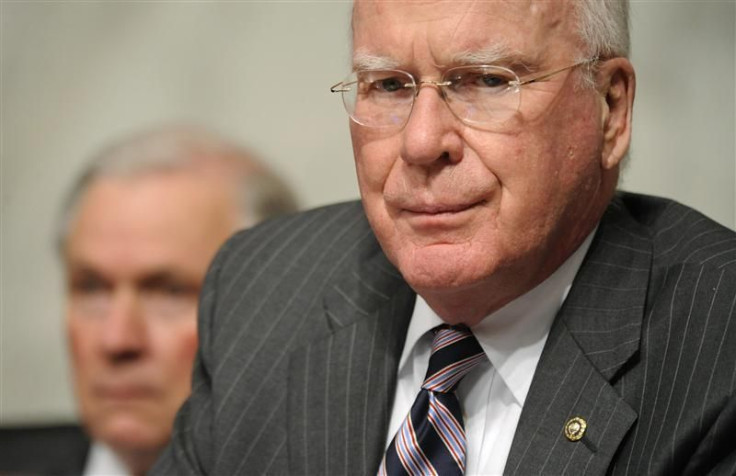Immigration Reform 2013: Senate Judiciary Committee Passes Bill

The Senate Judiciary Committee approved a major overhaul of immigration law on Tuesday after legalization of same-sex spouses was stripped from the bill.
By a vote of 13-5, the panel approved a nearly 900-page package that would put 11 million illegal residents on a 13-year path to citizenship while boosting security along the Mexican border.
Three Republicans voted for the bill after it was amended to assure that tech companies wouldn't have to offer jobs to Americans before they can hire foreign workers. The provision was backed by Sen. Orrin Hatch, R-Utah, whose support is seen as crucial to building strong bipartisan momentum for the overall proposal.
The legislation already would raise the annual limit of high-tech visas, known as H-1B, from 65,000 to as many as 180,000, but Hatch has lobbied to eliminate other restrictions on U.S. companies seeking to hire engineers and programmers from abroad, the Washington Post reports.
Hatch said the changes made to visa rules were the price of his support for the bill when the committee took its final vote.
In a dramatic move just before the vote, Judiciary Committee Chairman Patrick Leahy, D-Vt., withdrew an amendment to give people the right to sponsor same-sex partners who are foreigners for permanent legal status.
Leahy's colleagues from both parties warned that the amendment would kill the legislation. Democrats generally favor providing equal treatment for heterosexual and homosexual couples, while many Republicans oppose it.
Top Republican negotiators such as Florida Sen. Marco Rubio said they couldn’t support the Gang of Eight compromise if the amendment were included.
"I'm committed to ending that discrimination," Leahy said before withdrawing the amendment, Reuters reported.
The Vermonter said he made his decision with a “heavy heart,” Politico reported.
“I take the Republican sponsors of this important legislation at their word that they will abandon their own efforts if discrimination is removed from our immigration system,” he said.
“As much as it pains me, I cannot support this amendment if it will bring down the bill,” said Sen. Charles Schumer, D-N.Y., who called the decision one of the most “excruciatingly difficult” he has to make during his time in public office.
Deputy Majority Leader Richard Durbin, D-Ill., said that while he believed in his “heart of hearts” in the intent behind Leahy’s measure, he added: “I believe this is the wrong moment, and this is the wrong bill.”
The visa compromise lifts the requirement that companies first offer tech jobs to Americans for all firms except those that depend on foreigners for more than 15 percent of their workforce. The compromise also relaxes the formula for determining the annual number of foreign high-tech workers, though it wouldn't raise the cap above 180,000 per year, aides told the Washington Post.
The high-tech amendments are perhaps the most substantial changes to the immigration bill over five days of hearings on dozens of proposed changes. Durbin and Schumer worked out the deal with Hatch during several days of intense negotiations.
In another encouraging sign for the legislation, Senate Minority Leader Mitch McConnell, R-Ky., said he won't block the measure from coming to the floor for a full debate.
McConnell didn't say how he ultimately would vote on the bill, but he told reporters that the changes won by Hatch "has made a substantial contribution to moving the issue forward."
All of the core elements of the legislation have been maintained after five long work sessions by the bipartisan group, and some border security provisions critical to conservatives and border-state members of Congress have been strengthened.
© Copyright IBTimes 2024. All rights reserved.











